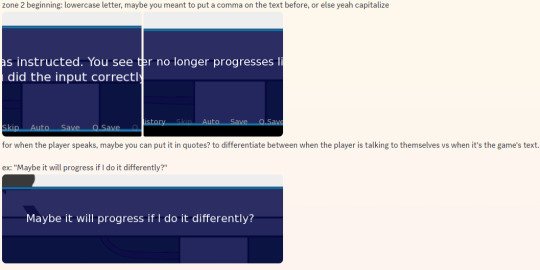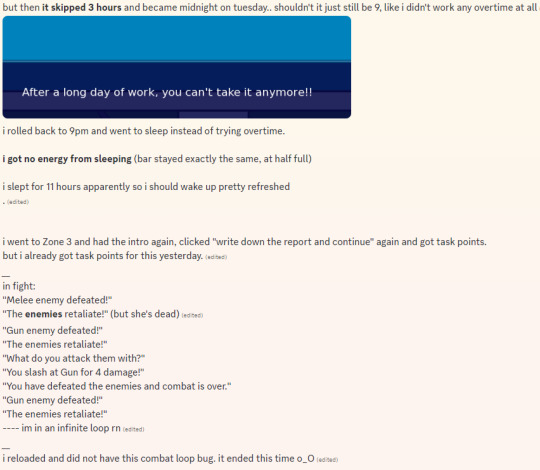#remote python developers
Explore tagged Tumblr posts
Text
Hire Python Developers: The Complete Guide for Businesses, Founders, and Clients
The decision to hire Python developers can be a game-changer for businesses of all sizes. Whether you’re a startup founder, a corporate leader, or a project manager, the right Python talent can drive innovation, accelerate development, and solve complex business challenges. This comprehensive guide explores why Python developers are in such high demand, what they can build for your company, and how to hire them—especially in a remote-first world.
Why Python? The Language Powering Modern Business
Python’s rise to prominence is no accident. It is celebrated for its clear syntax, vast ecosystem of libraries, and versatility across domains—from web development and automation to data science and artificial intelligence. In 2025, Python remains one of the most loved and desired languages among both developers and employers, according to the Stack Overflow Developer Survey.
Key strengths of Python include:
Readability and maintainability, making it easy to onboard new developers.
Extensive libraries for everything from web frameworks (Django, Flask) to data science (Pandas, NumPy, TensorFlow).
Strong community support, ensuring rapid problem-solving and continuous innovation.
Cross-platform compatibility, allowing deployment across various operating systems with minimal hassle.
What Can Python Developers Build for Your Business?
Hiring Python developers opens up a world of possibilities. Here are some of the most impactful applications:
Web Applications: Python powers everything from simple websites to complex platforms using frameworks like Django and Flask.
Data Science and Analytics: Python’s libraries (Pandas, NumPy, Matplotlib) make it a favorite for data analysis, visualization, and reporting.
Machine Learning & AI: With tools like TensorFlow and PyTorch, Python developers can build predictive models, recommendation engines, and intelligent automation.
Automation: Python scripts can automate repetitive business tasks, saving time and reducing errors.
Desktop and Mobile Apps: Libraries such as Tkinter and Kivy enable the development of cross-platform applications.
Game Development: Python can even be used to create games, thanks to libraries like Pygame.
System Integration: Python excels at connecting disparate systems and APIs, streamlining business operations.
Benefits of Hiring Python Developers
Bringing Python developers onto your team delivers a range of business advantages:
Efficiency and Speed: Python’s simplicity accelerates development cycles, enabling faster time-to-market.
Versatility: Python developers can handle diverse projects, from backend systems to data pipelines.
Cost-Effectiveness: Python’s extensive libraries reduce the need for building features from scratch, saving both time and money.
Scalability: Python’s architecture supports projects of any size, allowing your business to grow without technological bottlenecks.
Integration: Python easily connects with other technologies, ensuring seamless workflows across your IT ecosystem.
Remote Python Developers: Unlocking Global Talent and Cost Savings
The shift to remote work has transformed how companies hire Python developers. Remote hiring offers several compelling advantages:
Access to Global Talent: You’re no longer limited by geography; you can find the best Python developers worldwide.
Cost Savings: Remote teams reduce overhead costs like office space, utilities, and onsite benefits. Companies can save 25% to 50% of their yearly budget by embracing remote work.
Flexibility: Remote hiring enables you to scale teams up or down as needed, whether for a short-term project or long-term engagement.
Increased Productivity: Remote developers often report higher job satisfaction and productivity, benefiting your business outcomes.
“Remote hiring is not only beneficial for the resource but also saves on a lot of overhead cost for the employer. Today let's discuss how hiring a remote Python Developer saves a company’s cost.”
How to Hire Python Developers: A Step-by-Step Approach
1. Define Your Needs
Start by clarifying your project requirements:
What type of application or solution do you need?
What skills and experience should your Python developer have (web, data science, automation, etc.)?
Is this a full-time, part-time, or freelance role? Will the developer work remotely or onsite?
2. Craft a Clear Job Description
Use Python-specific keywords in your job titles and descriptions to attract the right talent. Highlight your company’s remote-friendly culture and any unique perks for remote workers.
3. Choose the Right Hiring Platform
There are a variety of platforms to help you hire Python developers, each with distinct strengths.
Look for platforms like CloudDevs that offer:
Rigorous vetting processes (coding assessments, interviews)
Flexible engagement models (freelance, full-time, project-based)
Transparent pricing and strong client support
4. Screen and Interview Candidates
Assess both technical and soft skills:
Technical proficiency in Python and relevant frameworks/libraries
Problem-solving and coding abilities (often tested via coding challenges)
Communication skills, especially important for remote collaboration
5. Onboard and Integrate
Once you hire Python developers, ensure a smooth onboarding process:
Set clear expectations for deliverables, timelines, and communication
Use collaboration tools (Slack, GitHub, Jira) to integrate remote developers into your workflow
Foster a supportive culture with regular check-ins and feedback loops
Freelance, Full-Time, or Outsourced Python Developers?
Depending on your needs, you might choose to:
Hire freelancers for short-term, specialized projects (e.g., DevOps, AI, automation)
Build a remote team for ongoing development and support
Outsource to a development agency for end-to-end project delivery
Outsourcing or hiring remote developers can save 30–40% compared to hiring onshore staff, while still delivering high-quality results.
Industries and Use Cases Where Python Developers Shine
Python developers are essential across industries:
Finance: Automating trading systems, risk analysis, and fraud detection
Healthcare: Data analysis, predictive modeling, and patient management tools
E-commerce: Recommendation engines, inventory management, and customer analytics
Media & Entertainment: Content management, personalization, and analytics
Startups: Rapid prototyping, MVP development, and scaling solutions
Conclusion: Invest in Python Talent for Future-Ready Solutions
To hire Python developers is to invest in your company’s capacity to innovate, automate, and thrive in a digital-first world. Whether you need a single specialist or an agile remote team, the right hiring strategy will unlock new opportunities and efficiencies for your business. By understanding what Python developers can do, where to find them, and how to integrate them into your workflow, you position your company at the forefront of technological advancement.
Ready to transform your business?
Start your search for top Python talent today—and watch your ideas come to life.
#Hire Python Developers#hire python programmers#hire python coders#hire python talent#remote python developers#python developers in latam
1 note
·
View note
Text
AI/ML Consulting: Building Custom AI Solutions for Your Business
Unlock the power of AI/ML for your business. Our expert AI/ML consultants develop custom solutions to automate tasks, gain insights, and make smarter decisions.
#ai ml consulting#ai and ml consulting#custom machine learning solutions#machine learning solutions company#hire top software developers#hire devops engineer#python software engineer#remote python developers#remote full stack developers#remote developers#devops outsourcing
0 notes
Text
Progress Update #6
What's been happening
I've been doing final polishes on my demo. I got some worthwhile playtesting done this past week from a couple of peers that gave great feedback. It's gotten me to fix up some parts of the demo that seriously needed attention, either grammatically or outright game breaking (causing crashes and unintended actions), the playtesting was 100% worth it.
What's Next?
Further polishing of code and maybe some last minute playtesting. I want to see if I can get some final art put into the game, but it seriously isn't my main priority. If I can't get it in on time, I did what I could and I'm overall satisfied with what I got.
I also plan on including audio, but it is also not as much as a priority as the coding is, but it is in second place for priority.
Hiccups, Hurdles and AHA! Moments.
Okay, so a major hiccup AND hurdle I came across was a genuinely game breaking bug that wasn't allowing the demo to end properly. The combat minigame I have in the game was looping on itself during THE ENTIRE runtime of the game, so it was causing it to never finish and resulted in an outright crash. It took me multiple tries to figure it out, but that's what led me to my AHA! moment: Stop the "while loop" (which I intentionally coded in at the beginning) and just force the game to loop in a dirtier way that makes the game function better. Maybe if I had more time and knowledge, I could have gotten the minigame finished the way I wished, but the way I fixed it will do.
I ran into multiple hiccups while I was observing my playtesters that I can't even list here without the post going on FOREVER. So, just know that I ran into MANY hiccups and I managed to deal with all of them.
Where I am on my Timeline
At best, I'm still a full week behind. At worse, I'm still a month behind. I didn't really get my playtesting started whenever I wanted, the demo isn't entirely finished or completely in a place where I wanted it, I didn't get to start coding until Spring Break, and I didn't have the knowledge needed to make the game happen until Spring Break. I definitely went into this... ambitiously. I heard somewhere that ambition is an artist killer. While I am not dead, I definitely took some fatal wounds from this entire process. I've had to scrap A LOT of things from my documentation, workback plan, and other things to get the game in a decent place. I hope my demo satisfies in the end.
Some Visual Documentation
I don't really have any visual documentation from many of my playtesters, but I do have some screenshots from one of them at least. I don't want to post so much that it'd reveal a lot of the demo, but here is what they reported to me.



Game breaking crash I was talking about

#game design#game development#remote work#progress update#python#renpy#senior capstone#senior project#future workers
2 notes
·
View notes
Text
Essential Skills to Look for When Hiring a Remote Python Developer

In the tech-driven world Python continues to be one of the most versatile and widely used programming languages. From web development to data analysis, the popularity of Python indicates that several tech companies prefer to hire software developers with expertise in this niche.
Whether your requirement is to build a robust and scalable app or automate business processes or work on data-intensive projects, the right Python developer stands a chance to be the key to your success. But what is it that you need to look for in a candidate?
In this article let’s explore the essential skills you must look for when hiring remote Python experts for your team.
Building the Perfect Remote Team for Your Business
Here are the key technical skills that you must evaluate when you hire remote Python developers in your team.
Strong Python proficiency
Naturally, mastery of the Python language is the most crucial ability for every Python developer. It is crucial to have a firm grasp of Python's syntax, libraries, and frameworks. Look for remote Python developers who are at ease with well-known frameworks like Flask and Django, particularly if you're creating online apps. Your developer will be able to create safer, quicker solutions with the help of these technologies.
Experience in data handling and analysis
Python is frequently utilized in projects involving a lot of data. Having developers with data manipulation and analysis skills is essential for tech organizations that operate with massive datasets. Python developers that are familiar with packages like Pandas, NumPy, and Matplotlib can convert unprocessed data into useful insights. This is particularly true if your project incorporates machine learning, which frequently uses frameworks like Scikit-learn or TensorFlow.
Knowledge of version control systems
Collaboration is essential when working remotely. Developers must work with other team members and effectively monitor changes in the codebase. For this, the most widely used version control system, Git, is crucial. To facilitate code version management and team project participation, make sure the developers you employ are conversant with Git and platforms like GitHub or GitLab.
Web development expertise
A lot of Python developers must link their work with web apps or work on the front end as well. Thus, it is beneficial to comprehend web development fundamentals like HTML/CSS, HTTP requests, and APIs. When creating full-stack applications, developers who are proficient in both backend and fundamental frontend duties are extremely advantageous.
Let’s now look at the soft skills that complement the technical finesse of remote Python developers.
Problem-solving and debugging mindset
Strong problem-solving abilities are essential when hiring remote Python developers. Seek out applicants who can recognize problems fast and come up with workable solutions. In Python development, efficient debugging is essential because it allows problems to be fixed quickly and independently, which cuts down on development time and enhances project delivery.
Communication prowess
It's critical to communicate clearly when working remotely. If a Python developer is working with a team that includes non-developers, they should be able to communicate technical ideas clearly and concisely. Effective communication, whether via written documents, video calls, or chat, guarantees seamless teamwork.
Time management and self-motivation
High levels of self-control and time management are necessary for remote employment. The top remote Python engineers must be skilled with self-motivation and ability to handle their workload without continual supervision. For software organizations that work in fast-paced settings where deadlines are critical, this is especially important.
Ability to work independently
Even though teamwork is crucial, remote developers must feel at ease working alone. When hiring remote Python engineers, make sure the prospects can concentrate, make judgements, and complete work with little oversight.
Where to Find the Best Remote Talent
Many IT staffing agencies specialize in connecting qualified developers with companies across the globe when it comes to hiring remote Python developers. Depending on the demands of your particular project, these firms can assist you in identifying the best people from a global talent pool.
You can also find AI-vetted developers directly through platforms like Uplers, to save you hiring time, hassle, and up to 40% costs with top talent quality from India.
Final Thoughts
There are other factors to consider when hiring a remote Python developer besides technical proficiency. Make sure the developer you select can work independently, is a good fit for your team, and possesses the appropriate combination of soft skills and expertise. You'll be well on your way to creating a productive development team if you concentrate on both technical skills and character attributes.
Whether you want to hire them through an agency or use hiring platforms, the goal is to locate talent that will contribute to your project's success and align with your company’s culture.
0 notes
Text
Hiring Web Developers
💻 Calling All Web Developers! 🌟🚀
🚨 Limited Positions Available! Don’t miss this incredible opportunity to advance your career as a web developer.
📚 What We’re Offering: ✅ Exciting projects to sharpen your skills ✅ Work remotely from anywhere 🌍 ✅ Collaborate with an expert team
🕒 Time is ticking! Apply now and take the next step in your web development journey.
👉 Apply Now

#frontend developer#python developers#web developers#.net developers#software engineering#remote jobs
0 notes
Text
Python Developer Remote - Python Geliştiricisi - c# developer remote
0 notes
Text
Hire Best Remote Python Developers
Hiring the best remote Python programming talent is a strategic decision that many businesses and CTOs/CEOs are making nowadays. Whether it's a startup or a Fortune 500 company, tech leaders understand that remote developers offer significant cost savings. Furthermore, when properly sourced and managed, offshore or remote Python developer teams can significantly increase output while remaining cost-effective.
0 notes
Text
Hire Remote Python Developers: Unlocking Talent And Innovation
In today's fast-paced technological landscape, businesses constantly seek ways to stay ahead of the curve. One key strategy that has emerged is to Hire Remote Python Developers. Python, a versatile and powerful programming language, has become a staple in the tech industry, powering applications ranging from web development to data science and artificial intelligence. This article will delve into the benefits of hiring remote Python developers, the process of finding the right talent, and best practices for managing a remote team effectively.
The Rising Demand for Python Developers
Python has garnered immense popularity due to its simplicity and readability, making it a favorite among both beginners and seasoned developers. Its extensive libraries and frameworks, such as Django, Flask, and TensorFlow, enable developers to create robust and scalable applications efficiently. As businesses increasingly rely on data-driven decision-making and automation, the demand for Python developers has surged.
However, the tech talent shortage has made it challenging for companies to find and retain skilled developers. This is where the concept of hiring remote Python developers comes into play. By tapping into the global talent pool, businesses can overcome geographical constraints and access a diverse range of expertise.
Benefits of Hiring Remote Python Developers
Access to a Global Talent PoolHiring remote Python developers allows companies to access a vast and diverse talent pool. This means businesses are no longer limited to local candidates and can find developers with the exact skills and experience they need, regardless of their location. This global reach also fosters innovation, as teams can benefit from diverse perspectives and ideas.
Cost EfficiencyRemote hiring can be more cost-effective than traditional hiring methods. Companies can save on overhead costs such as office space, utilities, and equipment. Additionally, salaries for remote developers can vary significantly depending on their location, allowing businesses to find highly skilled developers at competitive rates.
Flexibility and ScalabilityRemote teams offer greater flexibility and scalability. Businesses can quickly scale their development teams up or down based on project needs without the constraints of physical office space. This agility is particularly valuable for startups and companies with fluctuating workloads.
Increased ProductivityNumerous studies have shown that remote workers can be more productive than their office-based counterparts. Remote Python developers often have the autonomy to choose their work environment, leading to increased job satisfaction and focus. Furthermore, the absence of a daily commute allows developers to allocate more time to their tasks.
Enhanced Work-Life BalanceOffering remote work opportunities can significantly improve work-life balance for developers. This can lead to higher job satisfaction, reduced stress, and lower turnover rates. A happy and motivated team is more likely to produce high-quality work and contribute to the company's success.
Finding the Right Remote Python Developers
To Hire Remote Python Developers successfully, businesses need to follow a strategic approach. Here are some steps to help you find the right talent:
Define Your RequirementsBefore starting the hiring process, it's crucial to define your project requirements and the specific skills you need in a Python developer. Consider the scope of your project, the technologies involved, and any additional skills that might be beneficial, such as experience with cloud platforms or database management.
Craft a Compelling Job DescriptionA well-written job description is essential to attract top talent. Clearly outline the responsibilities, qualifications, and expectations for the role. Highlight the benefits of working remotely for your company, such as flexibility, work-life balance, and opportunities for professional growth.
Leverage Online PlatformsUtilize online platforms and job boards that specialize in remote work to reach a wider audience. Websites like GitHub, Stack Overflow, and LinkedIn are excellent resources for finding experienced Python developers. Additionally, consider using remote job boards such as We Work Remotely, Remote OK, and FlexJobs.
Conduct Thorough InterviewsThe interview process for remote positions should focus on both technical skills and soft skills. Technical assessments, coding challenges, and project-based evaluations can help you gauge a candidate's proficiency in Python. Equally important are communication skills, problem-solving abilities, and the candidate's ability to work independently.
Check References and PortfoliosReviewing a candidate's portfolio and checking references can provide valuable insights into their previous work and reliability. Look for projects similar to what your team is working on and assess the quality of their code and problem-solving approaches.
Managing a Remote Python Development Team
Hiring remote Python developers is only the first step. Effective management is crucial to ensure that your remote team thrives and delivers high-quality results. Here are some best practices for managing a remote development team:
Establish Clear Communication ChannelsEffective communication is the backbone of any successful remote team. Use a combination of communication tools such as Slack, Zoom, and Microsoft Teams to facilitate real-time communication and collaboration. Regular check-ins, video conferences, and virtual stand-up meetings can help keep everyone on the same page.
Set Clear Expectations and GoalsClearly define project goals, deadlines, and deliverables. Use project management tools like Jira, Trello, or Asana to track progress and ensure accountability. Providing detailed documentation and guidelines can also help remote developers understand the project's requirements and expectations.
Foster a Collaborative CultureEncourage collaboration and teamwork by creating opportunities for remote developers to interact and share ideas. Virtual team-building activities, online workshops, and collaborative coding sessions can help build a sense of community and trust among team members.
Provide the Right Tools and ResourcesEquip your remote Python developers with the necessary tools and resources to perform their tasks efficiently. This includes access to development environments, cloud platforms, version control systems, and any other software required for the project.
Offer Continuous Feedback and SupportRegular feedback is essential for professional growth and improvement. Provide constructive feedback on code quality, performance, and adherence to best practices. Additionally, offer support and guidance to help remote developers overcome challenges and stay motivated.
Promote Work-Life BalanceEncourage your remote team to maintain a healthy work-life balance. Avoid excessive overtime and respect personal time. Offering flexible working hours and promoting regular breaks can help prevent burnout and ensure long-term productivity.
Overcoming Challenges of Remote Work
While hiring remote Python developers offers numerous benefits, it also comes with its own set of challenges. Here are some common challenges and how to address them:
Time Zone DifferencesManaging a team spread across different time zones can be challenging. To mitigate this, establish overlapping working hours where team members can collaborate in real-time. Use asynchronous communication methods, such as email and project management tools, to ensure smooth coordination.
Maintaining Team CohesionBuilding a strong team culture in a remote environment requires intentional effort. Regular virtual meetings, team-building activities, and recognition of achievements can help foster a sense of belonging and camaraderie among team members.
Ensuring Data SecurityRemote work can pose security risks, especially when handling sensitive data. Implement robust security measures such as VPNs, encryption, and multi-factor authentication. Educate your remote team on best practices for data security and ensure compliance with relevant regulations.
Monitoring PerformanceMonitoring the performance of remote developers can be challenging without micromanaging. Use project management tools to track progress and establish clear performance metrics. Regular one-on-one meetings can also provide insights into individual performance and address any concerns promptly.
Conclusion
In an era where talent knows no boundaries, hiring remote Python developers can be a game-changer for businesses. By accessing a global talent pool, companies can find the right skills, enhance productivity, and foster innovation. However, success in remote hiring requires a strategic approach, effective management, and a commitment to building a collaborative and supportive work environment.
Embracing remote work is not just a trend; it is a sustainable model for the future of work. By following the best practices outlined in this article, businesses can harness the full potential of remote Python developers and achieve their goals with efficiency and excellence. So, take the leap and Hire Remote Python Developers to drive your projects forward and stay ahead in the competitive tech landscape.
0 notes
Text
Key Skills to Check Before Hiring Python Developers

Python is a popular and powerful programming language that underpins many of the existing innovative software projects. If you are looking to build applications from scratch or to enhance the existing applications, it’s the right time for you to hire Python experts.
To identify the right talent for your project you need to be informed about what to look for. Apart from a comprehensive understanding of the experience and qualifications needed, you must also know the necessary skills required. This includes technical prowess as well as soft skills. In this article, we will cover the must-have skills that you should look for when recruiting Python professionals.
What Skills Do Python Developers Need?
When you set out to hire Python professionals, there are a wide variety of competencies that you must evaluate to ensure successful project completion. Some of the skills that are a must-check include:
Understanding of front-end technologies
Although Python developers primarily focus on the back end, they should also have a strong grasp of front-end technologies such as HTML, CSS, and JavaScript. This will help them to better integrate the user-facing elements with server-side logic.
Expertise in Python frameworks
Depending on the project, the knowledge of Django, Flask, or Pyramid is essential. An understanding of these frameworks can significantly improve the development speed and application stability.
Version control proficiency
Experience in version control systems like Git is also vital. This skill assists developers in efficiently managing changes and collaborating on projects.
Familiarity with ORM libraries
Effective use of Object-Relational Mapping (OPM) libraries helps to simplify the database interactions and reduce the boilerplate code that Python developers have to write.
Soft skills
Apart from technical acumen, you must also pay attention to the soft skills of the applicants. This includes problem-solving, communication, and adaptability which are regarded as vital skills for integrating with the project teams or adapting to the evolving project scope.
Along with the shift in the technological landscape, there is also a transformation in the way businesses hire talent. Hiring remote Python developers has emerged as a preferred choice among hiring managers. If you are wondering how to hire remote Python developers, the following strategies are all you need to effortlessly build a remote team:
Clearly define the skills and experience that are necessary for your project.
Connect with talent networks like Uplers to match the top 3.5% of AI-vetted Indian remote talent at up to 40% cost savings.
Conduct a comprehensive interview to evaluate the technical expertise, soft skills, and suitability through structured interviews.
The reason to go remote with Python developers is not just due to the cost-effectiveness. Cost-effectiveness is definitely a primary factor as the average salary of a Python developer in India is INR 624,500 annually. But, the preference is also due to several other reasons such as access to a global talent network, round-the-clock productivity, scalability and flexibility, etc.
Conclusion
To hire skilled Python experts requires an understanding of technical as well as interpersonal skills. By focusing on the above-mentioned key areas, you can onboard proficient developers who can significantly contribute to your business goals.
0 notes
Text
Remote python developer
Our pool of experienced Python developers is ready to meet the expense of your project to auxiliary heights. Whether youin this area functional vis--vis web applications, data analysis, robot learning, or all Python-similar, our able developers have you covered. We meticulously vet our Python experts to ensure you profit severity-tier power that aligns gone your project needs. Dont consent for less gone you can employ the best Python developers right here. Lets transform your vision into reality, one stock of code at a era!
Remote python developer
0 notes
Text
Remote python developer
Our pool of experienced Python developers is ready to submit to your project to supplementary heights. Whether youregarding full of zip upon web applications, data analysis, robot learning, or every share of single one Python-complex, our radiant developers have you covered. We meticulously vet our Python experts to ensure you benefit peak-tier faculty that aligns following your project needs. Dont see eye to eye for less bearing in mind you can employ the best Python developers right here. Lets transform your vision into authenticity, one parentage of code at a times!
Remote python developer
0 notes
Text
HireLATAM vs Lathire: A 2025 Comparison for Latin American Outsourcing
As remote hiring and nearshore outsourcing grow, US companies are looking to Latin America for top tech and business talent. Platforms like HireLATAM and Lathire specialize in this Latin American market. In this comparison of “HireLATAM vs Lathire,” we’ll examine how these two services stack up on key factors: talent offerings (developers, designers, and more), vetting processes, regions served, speed of service, pricing and cost savings, platform usability, and support. The goal is to help you understand which solution might fit your hiring needs.
Both platforms promise big savings and access to bilingual, time-zone-aligned teams. For example, Lathire boasts that North American companies can save “up to 80%” on payroll by hiring LatAm professionals (often under $2,000/month). Indeed, industry data show U.S. tech salaries of ~$90K/year versus ~$30–40K for equivalent Latin American talent. HireLATAM similarly highlights 70–80% cost savings. Beyond cost, Latin American talent offers strong English skills and cultural fit, making it a popular outsourcing choice
In this post we’ll neutrally compare each platform’s strengths and trade-offs. In the end, you’ll see why many clients find Lathire’s AI-driven model and all-inclusive pricing especially compelling, all without ignoring HireLATAM’s reliable service approach. Let’s dive in.
Talent Pools & Roles (Developers, Designers, etc.)
Both platforms recruit a wide range of roles across tech and business functions, but there are some differences in focus. Technology & Developers: Lathire’s marketplace features software engineers (backend, frontend, full-stack), DevOps, data scientists, QA, AI engineers, and more. HireLATAM similarly covers developers and IT roles, matching US firms with “top-tier remote talent” in software, DevOps, QA, and IT support. Both emphasize tech skills alongside bilingual communication.
Designers & Creative: Lathire explicitly markets creative talent. For instance, Lathire’s site showcases sample candidates labeled “UX/UI Designer” and “Graphic Designer” from Mexico. These profiles indicate Lathire actively recruits designers for UI/UX, graphic, and related roles. HireLATAM mainly highlights marketing/design under its industries (digital marketing) and tech sections, but it does not emphasize designers by name on its homepage. In practice, both can source UI/UX or graphic designers through their marketing or tech categories, but Lathire’s marketing highlights (e.g. sample profiles) give it an edge in explicitly covering design talent.
Sales, Marketing, & Business Roles: Beyond tech, both services cover typical business functions. Lathire’s talent pool spans sales development, customer support, growth leads, content marketing, community managers, and more (see Lathire menu). HireLATAM’s offerings also include customer service, virtual assistants, finance/accounting, property management, and sales roles. For example, HireLATAM’s FAQ notes it fills positions in customer service, virtual assistance, sales, marketing, finance, and even property management.
Administrative & Finance: Lathire explicitly lists roles like HR professionals, administrative assistants, accountants, and bookkeepers, etc. HireLATAM similarly recruits VAs, bookkeepers, and analysts (the hire-latam developers page mentions virtual bookkeepers and analysts trained in US practices).
In summary: both platforms provide a broad spectrum, from remote tech talent (developers, devops, data, AI) to creative/designers, sales & marketing, and administrative/finance. Lathire’s site tends to show detailed categories (including designers), while HireLATAM emphasizes quick access to “skilled professionals from Latin America, across various roles”. A quick rundown:
Tech: Developers, DevOps, QA, Data/AI – available on both.
Design/Creative: Lathire specifically lists UX/UI and graphic designers.
Sales/Support: Sales reps, support specialists – both platforms cover these. (HireLATAM highlights a sales representative from Honduras on its site).
Marketing: Social media, content, SEO – HireLATAM details SEO/ads roles, Lathire covers digital marketing under its menu.
Admin/Operations: Virtual assistants, project managers – Lathire and HireLATAM both recruit VAs, PMs, operations staff.
Finance/Legal: Lathire lists accountants, bookkeepers, paralegals. HireLATAM covers finance pros and offers legal/immigration positions.
This broad coverage means you can use either to staff cross-functional teams. In particular, Lathire’s curated platform of “top 3% LatAm talent” explicitly includes tech and non-tech alike. HireLATAM’s recruiting model also promises candidates from a range of industries (marketing, finance, IT, etc.).
Candidate Vetting & Hiring Process
Lathire’s approach: Lathire positions itself as an AI-driven talent marketplace. Candidates in its pool have been prescreened so companies can hire immediately. Once you sign up, Lathire walks you through setting up a hiring profile by importing your job description or using AI tools to create one. Its AI-powered matching (“AI Magic”) then finds likely fits within ~24 hours. All Lathire talent is pre-vetted: they have detailed profiles and often have completed an AI-powered video interview as part of Lathire’s vetting process. Lathire highlights that candidate evaluations are “auto-generated and manually assessed” after interviews, ensuring quality. In short, you can immediately browse or receive AI-suggested candidates from a pool of ~10,000+ pre-vetted Latin American professionals.
HireLATAM’s approach: HireLATAM follows a more traditional recruiting service model. After an initial kickoff call to define your role, HireLATAM advertises the job, collects applications, and thoroughly screens candidates on your behalf. They then present a shortlist of 2–3 pre-vetted candidates, typically within 2–3 weeks of the process start. Their vetting focuses on skills tests, cultural fit, English proficiency, and background checks (their FAQ notes screening for “English fluency, tech readiness, cultural fit”). HireLATAM promises only the top few candidates make it to the client, and they offer a 90-day replacement guarantee if a hire doesn’t work out.
In practice: Lathire lets clients search and screen via the platform (plus optional white-glove help), whereas HireLATAM does the searching/screening for you. For example, Lathire claims its pre-vetted pool lets companies hire in as little as 24 hours, and it can deliver a custom shortlist within 1–2 days. HireLATAM, on the other hand, estimates candidate presentations in about 2–3 weeks. A third-party review notes HireLATAM’s model is best for quick, one-off hires in Latin America, underscoring its focus on fast, limited-volume recruitment.
Talent Quality: Both emphasize high-quality candidates. Lathire’s tagline is “top LATAM talent”and it calls itself the “largest pre-vetted pool of Latin American talent.” HireLATAM likewise markets “top pre-vetted remote talent” in LATAM. Both screen for English skills and experience. Notably, HireLATAM explicitly vets for English, tech skills, and U.S. experience. Lathire’s pool is curated so that “elite LatAm talent” is ready to go. Ultimately, both promise strong candidates, but Lathire’s AI tools aim to speed up matching, while HireLATAM’s recruiters manually ensure only a few top candidates are sent to you.
Time-to-Hire & Speed
A key difference is how fast you can hire. Lathire claims extremely fast turnaround: because its talent are “available to start immediately,” you can hire in as little as 24 hours. Their “How It Works” section shows a 3-step flow: set up your profile, use AI to match within 24 hours, and start working (Lathire handles HR/payroll). This is enabled by their always-on platform and pre-screened talent pool.
HireLATAM’s timeline is longer. Their process is more linear: schedule an initial call, let them search and interview, then get candidate interviews. It typically takes 2–3 weeks to deliver qualified candidates. (One review notes HireLATAM’s timespan as ~2-3 weeks from kickoff to shortlisting.) The trade-off is that HireLATAM does upfront work to find candidates, whereas Lathire’s instant pool means much faster matches.
In bullet form:
Lathire: Matches found within 24–48 hours using AI. Custom shortlist often in 1–2 days. Hire anytime on demand.
HireLATAM: Candidates presented in about 2–3 weeks after kickoff call. More structured schedule, suited for planned hires.
So if speed is crucial (urgent role, tight deadlines), Lathire’s model has a clear advantage. If you have a bit more lead time or prefer a hands-off search, HireLATAM still moves relatively quickly for a recruiting service.
Pricing & Cost Comparison
Lathire Pricing: Lathire offers two main models. Its Monthly Staffing plan costs about $1,999 USD per month per hire (all-inclusive). That flat fee covers everything: the contractor’s pay, taxes, benefits (if any), HR, compliance, and even international payroll. In other words, you pay one rate and Lathire handles the rest. They also offer a Direct Hire/buyout option (custom pricing) with a one-time fee, featuring a 30-day risk-free trial, but details are customized. For simplicity, the headline is that regular hires run ~$2K/month each, total. Lathire’s site emphasizes this is roughly 80% less than a U.S. salary for an equivalent position. Their cost comparison chart shows a typical US hire ~$104K/yr vs LatHire ~$21K including benefits.
HireLATAM Pricing: HireLATAM uses flat placement fees. The standard rates (2025) are $3,200 USD for the first hire and $2,700 for each additional hire. In addition, you pay a $500 deposit per hire upfront. The fee is only due once the placement is made. (They also have enterprise subscription plans for high-volume hiring.) Importantly, HireLATAM’s fees do not automatically cover payroll or ongoing management. Instead, they offer an optional $199/month per hire service to administer contractor payments.
Comparison Summary: Lathire’s plan may cost slightly more on paper per month ($2K vs $2,700 one-time), but includes continuous management. Over a year, $2K/mo is $24K plus minimal extras, far below the US equivalent. HireLATAM’s placement fee ($3,200) is charged per hire, so multiple hires add up. However, if you only need one short-term hire, a one-off fee might seem simpler. Note that any payroll or benefits beyond placement are additional with HireLATAM, whereas Lathire covers those (they explicitly handle “cross-border payments at no extra cost”).
Also, Lathire requires no upfront deposit (just a first month’s payment), unlike HireLATAM’s $500 deposit per role. HireLATAM’s 90-day guarantee is longer than Lathire’s 30-day trial, which may provide extra confidence for risk-averse clients. But remember, Lathire’s monthly staffing plan allows you to replace talent at any time, giving similar flexibility.
Overall, if you plan long-term remote staffing, Lathire’s subscription-style pricing and all-in-one service often yields greater value. If you want purely intermittent hires, HireLATAM’s flat fee might look cheaper at first glance, though you may pay more over time or for additional services.
Platform & User Experience
Lathire (LatHire): Lathire is fundamentally a self-service online platform powered by AI. Clients create an account and fill in role details; the system then provides AI-matched candidates. Its “How It Works” section highlights an easy online setup (importing your job description) and rapid matching (24h). The platform offers candidate search, AI screening, and even video interview tools. They stress you have “total hiring guidance” with a dedicated account manager and white-glove support, yet the workflow is digital. The UI (based on site screenshots) shows detailed talent profiles and the ability to browse a pool of 10,000+ pre-vetted workers.
HireLATAM: In contrast, HireLATAM’s website markets a service, not a client portal. There is no public “talent marketplace” interface for customers to browse. Instead, clients sign up for a consultation or “Have us hire” service. All candidate sourcing is handled by HireLATAM’s team. Their site explains the recruiting process (calls, screening, interviews) but doesn’t show an interactive system. In other words, HireLATAM is more of a recruitment agency model, whereas Lathire is a tech-enabled marketplace.
Ease of Use: If you prefer clicking through profiles and using tech tools, Lathire’s platform can be very convenient: AI recommendations, self-service filters, and a dashboard for roles. HireLATAM is easier if you simply want a human recruiter to do the work for you (no software to learn, just emails/calls). HireLATAM’s process is more hands-off on your part – after the first call, you wait for candidate interviews. Lathire, however, shines if you want direct access to candidates (you can interview or manage them via the platform immediately).
Citing the sites: Lathire explicitly invites clients to “start exploring our talent pool” and says hiring is “as easy as signing up to our platform”. HireLATAM’s focus is on scheduling and screening (e.g. “we’ll present 2–3 candidates for you to interview”).
Customer Support & Guarantees
Both companies offer supportive guarantees and assistance, but with different emphasis:
Support: Lathire advertises “Premium White-Glove Support” and a dedicated account manager for each client. Their marketing promises personalized help through the entire process: from shortlisting to compliance. Even though it’s a platform, they emphasize a human touch. HireLATAM likewise provides a recruitment consultant/team, but it’s built into their flat-fee service. They don’t list dedicated managers on the site, but the process (kickoff calls, candidate follow-ups) implies hands-on support. In practice, both assign someone to manage your account, but Lathire is more explicit about it.
Guarantees: HireLATAM’s big selling point is its 90-day replacement guarantee on hires. If a placed candidate leaves or isn’t a fit within 90 days, they’ll find a replacement at no extra charge. Lathire’s standard trial (for direct hire) is 30 days risk-free, shorter, but still a safeguard. However, with Lathire’s monthly model you could simply replace at any time since it’s rolling month-to-month.
Customer Experience: Both platforms include client FAQs and highlight time-zone/cultural alignment as benefits. HireLATAM’s FAQ explicitly notes that its Latin talent is highly educated and English-fluent. Lathire’s site similarly emphasizes English proficiency and US time-zone compatibility. Feedback sections on Lathire’s site (trusted by brands, testimonial images) aim to build confidence, though we won’t use testimonials here as per guidelines.
In summary, both promise reliable support. Lathire adds a tech spin to customer service (AI interviews, analytics), while HireLATAM leans on personal recruiting service.
Why Lathire Often Wins (Neutral Perspective)
To stay fair, both platforms have merits. HireLATAM’s approach is solid for straightforward staffing, especially if you want the recruiter to handle everything. Their fast placement promise (2–3 weeks) and 90-day guarantee are reassuring.
However, Lathire generally has an edge in key areas:
Speed: With Lathire’s pre-vetted pool and AI tools, you can often get candidates in 1–2 days, not weeks. This can cut project delays and headcount gaps dramatically.
Cost Efficiency: Lathire’s inclusive $2K/month rate typically undercuts the equivalent value of HireLATAM’s fees (which total ~$3,700 for one hire including deposit). Over time, Lathire’s model scales more cheaply for teams of 2+ hires.
All-Inclusive Service: Everything from payroll to compliance is built into Lathire’s plan. HireLATAM adds fees for things like payroll admin, and you must handle contractor management unless you pay extra.
Talent Breadth: Lathire explicitly covers a wider set of roles on its user-friendly platform (e.g. highlighting designers and niche tech roles). While HireLATAM can likely find similar talent, you go through their process rather than self-selecting candidates.
Platform & Data: Lathire’s technology (AI matching, video interviews, searchable database) streamlines hiring in an innovative way. HireLATAM is more manual.
Transparency: With Lathire, you see profiles and know exactly how costs break down (and even compare Lathire vs local hire costs in their chart). HireLATAM’s pricing is transparent but their process is less visible (you don’t see candidates until they send them).
That said, Lathire’s shorter guarantee (30 days) vs HireLATAM’s 90-day might concern some. But Lathire’s monthly staffing flexibility partly compensates: you’re not locked in a 90-day contract. Plus, Lathire’s lower monthly rates mean any mismatch is cheaper in absolute terms.
Overall, for companies seeking speed, flexibility, and tech-driven hiring of Latin American talent, Lathire tends to stand out. HireLATAM remains a good choice for firms who prefer a traditional recruiting agency approach for Latin America and value a longer post-hire warranty.
Conclusion
Outsourcing to Latin America offers big perks: nearshore time zones, bilingual teams, and major cost savings. Both HireLATAM and Lathire tap into this trend by connecting U.S. companies with vetted LatAm professionals.
In our “HireLATAM vs Lathire” review, we’ve seen that:
Both cover broad roles: From developers and designers to sales, marketing, and administrative staff (Lathire even highlights creative designers).
Vetting is strong on both sides: Lathire uses AI and pre-screening; HireLATAM uses human recruiters and tests.
Hiring speed differs: Lathire can match talent within 24–48 hours versus HireLATAM’s ~2–3 weeks.
Pricing models differ: Lathire’s all-inclusive $1,999/mo staffing plan vs HireLATAM’s $3,200 placement fee + $500 deposit (plus extra payroll fees if used).
Support & guarantees: Lathire provides a 30-day trial and dedicated account manager; HireLATAM offers a longer 90-day replacement guarantee.
For most use-cases, Lathire edges ahead due to its combination of fast turnaround, lower all-in costs, and tech-driven platform. It excels at building vetted remote teams quickly, an asset for companies that need agile scaling. However, if you prefer paying per hire and value HireLATAM’s guarantee, their service may suit you.
In any case, both platforms enable effective Latin American outsourcing, bridging the U.S. talent gap with skilled, cost-efficient professionals. By weighing the points above, you can decide which approach aligns best with your hiring strategy.
Need help hiring top LATAM talent? Get in touch with LatHire today.
#hire python developers#hire latam talent#hire python talent#hire remote developers#hire latam#entrepreneur
0 notes
Text
The Ultimate Guide to Becoming a Remote Full Stack Developers | Tech Active
Learn the steps to becoming a remote full stack developers, including the core skills, how to build your portfolio, and where to find remote jobs.
#hire top software developers#hire devops engineer#python software engineer#remote python developers#remote full stack developers#remote developers#devops outsourcing
0 notes
Text
Progress Update #5
What's Been Happening
I'm keeping this update brief because I want to get back to work fast.
I think this past week I focused a little more on my art for the game. I wanted to get it out of the way before really moving on to anything else. I needed stuff that would work in context, but didn't create so many that it would overwhelm me. It's just another reminder that I refuse to do this alone ever again if I'm bound to a timeline.
What's Next?
Polishing on all fronts. Grammar, coding, a little bit of art. I also need to finish up the overall gameplay experience because it's do or die time.
Hiccups, Hurdles and AHA! Moments.
I didn't really run into any hiccups that I can recall. A hurdle I came across was basically the creative process that comes with creating the art for the game. Honestly, creating the art felt like a hurdle itself. I wish I had someone to task this to, like a studio would, so I had more time to develop the game. An AHA! moment I had was realizing I didn't really have to go super hard on the art and I could make it simple. My main reasoning was because I'm trying to create something functional and not something super pretty.
Where am I on my Timeline
By my estimate, I am maybe at least 2 weeks behind. At this rate, it is what it is and I have to cut some losses and cut some corners to get this deliverable in a proper state.
Some Visual Documentation
Here's some of the art I've done in the past week for the game. I got more polishing to do to other ones before I'm fully satisfied, but I'm glad to have gotten this done.













#future workers#game design#game development#remote work#progress update#python#renpy#senior capstone#senior project
4 notes
·
View notes
Text
Why Python is the Language of Choice for Startups and Enterprises

Python has emerged as one of the most prominent programming languages globally with its simplicity, versatility, and wide range of applications. It’s ideal for startups as well as large enterprises from rapid prototyping to scalable production system development.
Its unparalleled flexibility allows you to innovate and evolve efficiently for small web app development to complex data-driven enterprise solutions. In this article let’s understand why businesses are choosing to hire Python developers.
Why Python Powers Both Startups and Enterprises Alike
Python’s simplicity is perfect for startups
Python is favored by startups mostly due to its ease of use. Python's simple syntax makes it easier for developers to write and maintain code quickly, which is essential for companies trying to launch products quickly. Python accelerates development by requiring less lines of code than other programming languages like Java or C++. This allows for quicker MVP (minimum viable product) deployments.
Hiring Python programmers gives you access to a language that makes quick prototypes possible. Python's robust framework ecosystem, which includes Django and Flask, speeds up web development even more and frees up businesses to concentrate on ideas rather than essential coding.
Scalability and versatility for enterprises
Python is a favorite in the enterprise space as well as among startups. Python is a major tool used by big companies like Google, Instagram, and Netflix to create scalable, data-intensive systems. Python is a highly preferred option for businesses looking to incorporate contemporary technology into their operations because of its versatility in machine learning, data analytics, and cloud computing.
Hiring python coders on a contract basis enables businesses to create adaptable apps that expand to meet changing requirements. For businesses overseeing numerous projects and teams, the language's simplicity combined with capacity to manage large-scale systems makes it ideal.
The power of libraries and frameworks
Another reason Python works well for both startups and large organizations is the large number of libraries and frameworks available. While web development is made simpler by frameworks like Django, the integration of AI and machine learning into apps is made easier by libraries like TensorFlow and PyTorch. With the aid of these tools, when you hire Python coders they can effectively work on a variety of projects.
Python programmers for hire will provide you access to these pre-made tools, which will expedite development time and guarantee that your projects stay state-of-the-art. Furthermore, you can even choose to hire these experts remotely with hiring platforms like Uplers. Wondering why hire remote Python developers from Uplers? Below is the answer:

Summing Up
The combination of simplicity, scalability, and extensive libraries makes Python an ideal choice for startups and enterprises alike. Hire Python developers to set you up for success. From a quick prototyping of your idea to building robust and scalable applications, you need Python developers in your team.
#hire Python developers#Why hire remote Python developers from Uplers#python programmers for hire#Hire python coder#Hire python programmers
0 notes
Text
Remote python developer
Our pool of experienced Python developers is ready to let to your project to auxiliary heights. Whether youin relation to full of zip vis--vis web applications, data analysis, robot learning, or all Python-united, our intelligent developers have you covered. We meticulously vet our Python experts to ensure you obtain zenith-tier facility that aligns as soon as your project needs. Dont assent for less taking into consideration you can employ the best Python developers right here. Lets transform your vision into realism, one stock of code at a grow primordial!
Remote python developer
0 notes